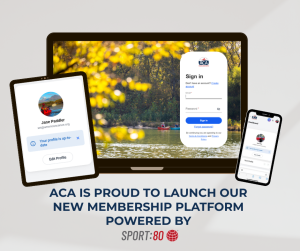ICF Sports
Marathon
Marathon
Vote Now – 2025 Marathon Competition Committee Elections – Closes June 4
Hundreds of regional and local canoe marathon races exist all over the world. These events can occur on rivers, lakes, or open water, and often include over-land portages, where athletes will carry their boat and paddle over land to the next body of water. Marathon races can range in distance from a 10 km (about 6 miles) to the 715 km (about 444 miles) “Yukon River Quest,” the world’s longest annual canoe/kayak ultramarathon. However, at the highest level of internationally sanctioned competition, the International Canoe Federation (ICF) has adopted strict rules regarding distance, course design, and portages.
The first ICF Marathon World Championship was held in 1988 in Nottingham, United Kingdom. The Marathon World Championship was a bi-annual event from 1988 to 1998, until its promotion to an annual event beginning in 1999.
The Marathon World Championships has steadily progressed towards a more spectator and media friendly event by both abbreviating the distance and standardizing the number of laps and portages. For example, the early championship races for the K-1 Senior Men were 42 km. These races were shortened to 36 km in 1999, and to 30 km in 2008. The current 30 km course was divided into seven laps with six portages in 2008. Beginning in 2017, the distance remained at 30 km, but now consists of eight laps with seven portages.
The women’s race has also undergone changes. The K-1 Senior Women competed over the same 36 km course as the men at the 2003 World Championships, but currently the women’s race is set at 26 km over seven laps with six portages.
The most recent development is the addition of the new “short track” marathon, introduced in 2019. This event is only 3.6 km including two portages. It is run in a set of heats, similar to sprint competitions, and is held in conjunction with the traditional Marathon World Championship events.
Kayaks and canoes are also strictly regulated in both dimensions and weight. To meet ICF regulations, the K-1 boat must be seventeen feet in length (5.2 meters) with no minimum width restriction and must weigh a minimum of eight kilograms (about 17 lbs.). The C-1, also referred to as a “high kneel” canoe, must not exceed 10 kilograms (about 22 lbs.). These extremely narrow kayaks and canoes, often referred to as the “formula ones” of paddle-sports, require tremendous skill to balance.
The American Canoe Association (ACA) serves as the governing body for all internationally recognized competitive paddling disciplines, including canoe/kayak marathon. The ACA’s Marathon Committee is responsible for hosting the annual Marathon National Championship, which serves as the official selection race for the U.S. National Team.

